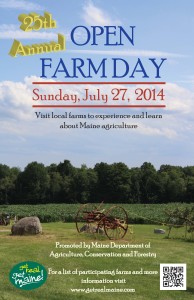The new issue of Mainebiz includes a feature article on the challenges farmers and local food stores face in selling and distributing local produce.
Constant negotiating with buyers and other farmers is a way of life in Maine’s fragmented food distribution system, especially for small farmers and purveyors of specialty items like jams and honey. Those small operations practically define the local food and farm-to-table movements that sparked consumer interest in where food comes from and how it is grown or produced.
But that curiosity hasn’t helped broaden Maine’s food distribution system for the small producers to any significant degree, says Spear. The result: many small operations sell only within Maine or at most a day’s delivery drive, thus limiting their market.
